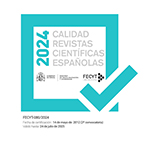Inequality in the distribution of land in Colombia: Main obstacle to a lasting and democratic peace
Abstract
The unequal distribution of land ownership in Colombia and consequent rural poverty is the main cause of the armed conflict that has beset the country for over fifty years. The concentration of land ownership in the hands of the few, the power wielded by agribusiness and farmers and the predominance of a farming system aimed more at export than at domestic consumption, all urge a reform that goes beyond mere land redistribution: land ownership must be democratised by providing small farmers with access to supplies, credit and technical assistance, as well as infrastructures, education, housing and health. The new agricultural and rural legislation brought in during the peace process to help usher in the post-conflict era is incomplete, presents many limitations and does not substantially address the root of all the problems: the land ownership structure.Downloads
Article download
License
In order to support the global exchange of knowledge, the journal Anales de Geografía de la Universidad Complutense is allowing unrestricted access to its content as from its publication in this electronic edition, and as such it is an open-access journal. The originals published in this journal are the property of the Complutense University of Madrid and any reproduction thereof in full or in part must cite the source. All content is distributed under a Creative Commons Attribution 4.0 use and distribution licence (CC BY 4.0). This circumstance must be expressly stated in these terms where necessary. You can view the summary and the complete legal text of the licence.












